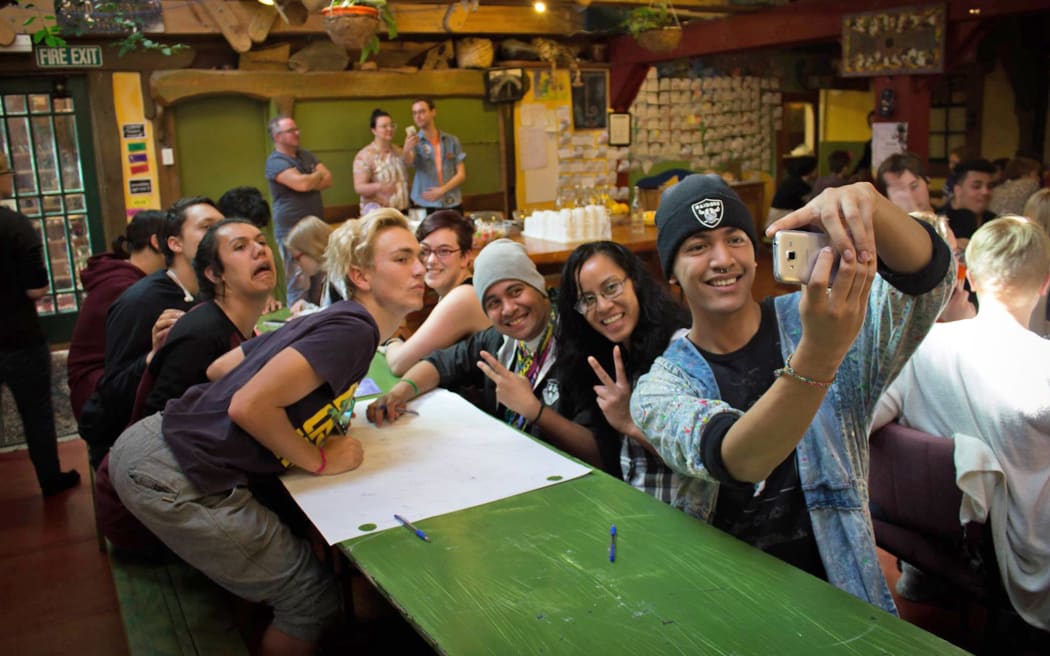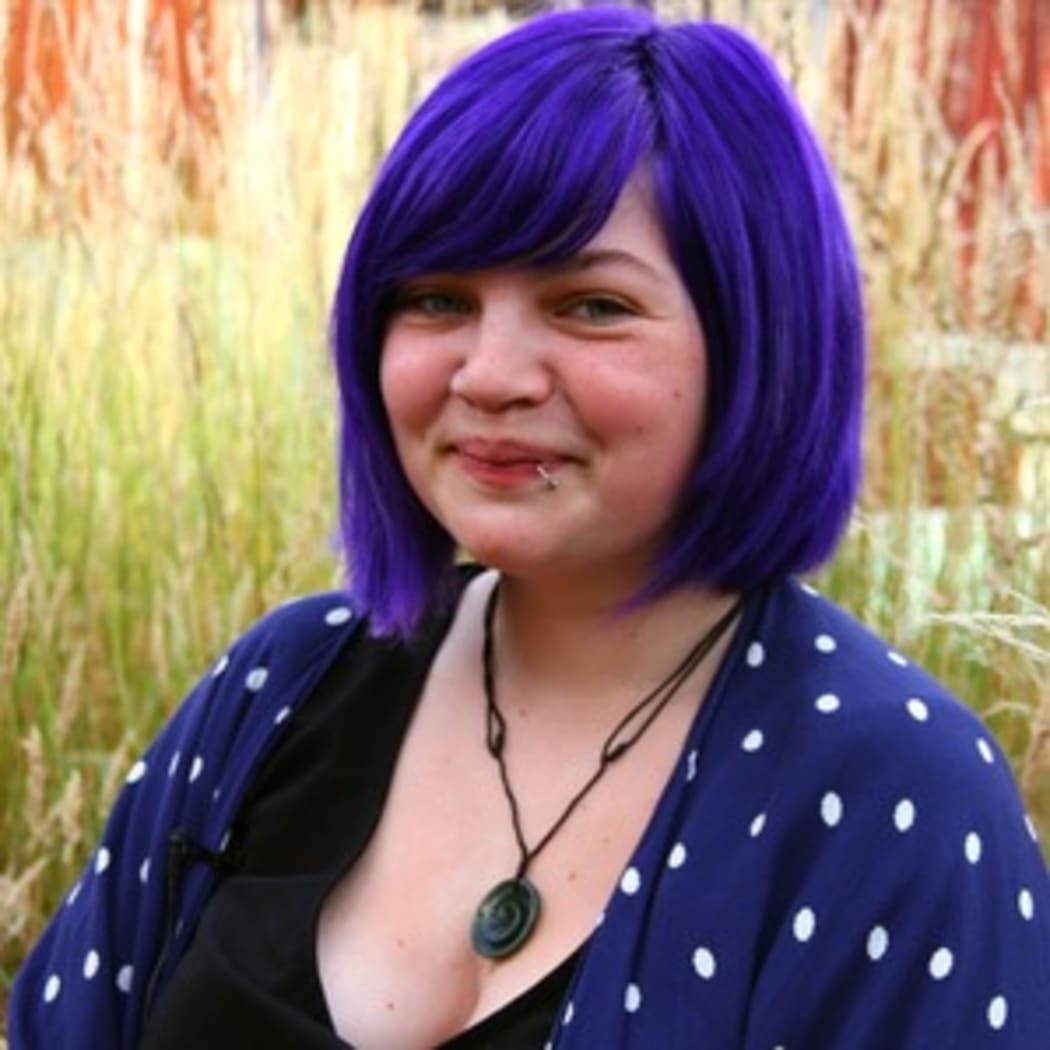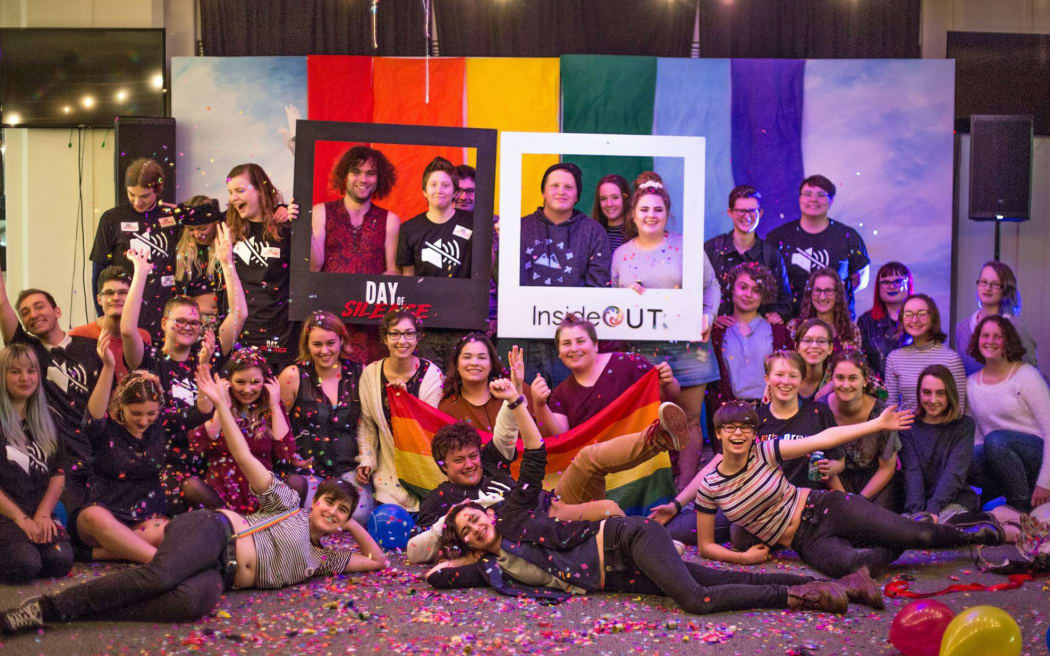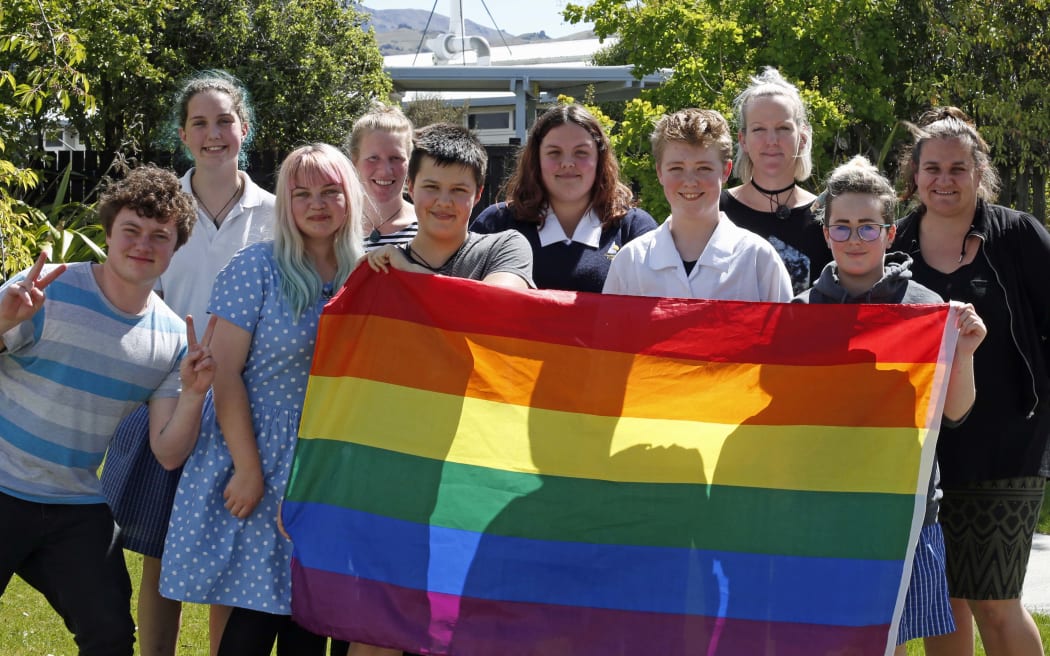Celebrating diversity.

Photo: Supplied
High school can be a tough place for rainbow youth.
The national charity Tabby Besley founded, InsideOUT, aims to change that.
As well as supporting students to set up queer-straight alliance groups in high schools, InsideOUT runs the national “Day of Silence” awareness campaign, hosts Shift Hui - an annual gathering of minority sexualities, sexes, and genders, and creates and provides LGBTQI resources for schools and companies.
InsideOUT is mostly funded by community grants.
With the charity celebrating its fifth birthday this week, we spoke to Tabby about how far it has come, and what’s still to achieve.
Are high schools safe places?
At the moment, we do have a big problem in terms of the safety of young rainbow people in our schools. We know more than half of our community are bullied at schools on a weekly basis. A lot of that is also physical violence. Sometimes we think homophobia, transphobia and biphobia are just subtle and verbal things, but studies show bullying often goes beyond that.
I think another big problem is there's a lack of education, both for students and staff. There’s a lot of work to do if we want to get rid of discrimination and improve young people’s mental health.

Tabby Besley. Photo: Supplied
At the same time, I would say things have improved a lot over the past five years. I like to think InsideOUT has had an effect - with the resources and advice we provide schools. But while the tendency is to think everything is alright, we need to know that there are still so many young people out there struggling - young people who don’t feel safe - particularly in more rural areas.
Why do you think that is?
There is a huge ignorance among staff in schools and a huge need for education in rural areas. I think there's a generational gap, particularly relating to how language has evolved and thinking outside of the gender binary.
The more rural you get, the bullying tends to get worse. We’ve heard of some horrific incidents happening. There are also some schools that think everything is OK because teachers aren't hearing about specific incidents or they think having a level of education in classes is enough, but there aren’t many young people at those schools who are open about their identity. If the environment was safe, that wouldn’t be the case.
How has your own experience at school shaped what you do now?
The first high school I went to had a really homophobic environment and so when I did start to question my identity, I didn’t feel like I could even think about it, let alone talk about it. It seemed clear all around me that it was something people thought was weird and not acceptable.
Luckily, I moved to Nayland College in Nelson, which was a much safer environment and somewhere that made it clear it was OK to be who you are. I was still bullied, even in that kind of environment, perhaps because I was quite an “out” student. But the positive of that was that other young people confided in me about their experiences. That motivated me to do something and strengthen queer-straight alliance groups in the area.
Our alliance group at Nayland College was the first in New Zealand and led to me being contacted by students at different schools wanting that same sort of safe place, so we tried to set up groups elsewhere.

Photo: Supplied
What is a queer-straight alliance group?
It’s usually a group in a school or community that any young person can be a part of. People don’t have to label themselves to be a part of it. Many are still coming to terms with their identity. It’s also for people who are passionate about human rights and supporting their peers.
It’s about socialising and supporting other young people who are facing similar challenges. It’s somewhere for a young person to go if they are being bullied, having a hard time at home, or aren’t having their pronouns respected.
There’s the 'action' aspect and figuring out how to implement ways to make life safer for people. An example would be a group at Wellington Girls’ College who put together a proposal for gender neutral uniforms. Other groups have pushed for gender neutral bathrooms.
Beyond the work in high schools, what else has InsideOUT been doing?
Our main goal is for people to have a sense of safety and belonging, so we also offer businesses and organisations training and we host workshops on rainbow issues. We’ve done consulting work with Government departments like the Ministry of Education, ACC, the Office of Film & Literature Classification. We do work with medical professions and really just anyone supporting young people in any kind of role.
What are the key things you teach?
How long have you got? A lot of discrimination comes from a lack of understanding, so I guess the core of our work is giving people a basic level of knowledge around sexuality and diversity. From there, we suggest practical things groups can do to make their environment safer. For example, for trans and gender diverse people there’s a huge amount workplaces can do, such as introducing policies to support trans staff, having gender neutral toilets, or training staff so they can better respect their colleagues.

Tabby Besley, 3rd from left, founded InsideOut five years ago. Photo: Supplied
How did InsideOUT start?
The original goal was to ensure every secondary school in New Zealand has a queer-straight alliance group. After a couple of years, we realised we had bigger goals and a broader vision to make every school and community a safe place for young people. It hasn’t been easy. I was 19 when we started and didn’t really know how to start a charity.
How has InsideOUT developed?
Initially, we had a board of just six people doing minimal work with no funding. Now, we’ve got a team of about 50 volunteers and heaps of big national projects on the go. We estimate about one third of secondary schools now have alliance groups. We moved into our first physical office in Wellington at the end of last year. We meet with countless schools and are always speaking to schools that send us questions and ask for advice.
And it’s young people running things?
Yep, even our governance board is made up almost completely of people aged under 27. We do have a few older members who are there in a mentoring role, but don’t dominate conversation or decision-making. All of our volunteers are also under 27. We rely so much on the amazing work they do because we’re a pretty underfunded organisation.
I should also add we’re incredibly optimistic about the next few years. I hope we are able to stick around and help more young people in different communities. It is difficult living in the NGO world and worrying about your funding. We’re pretty hopeful that this new government will provide better resourcing and backing for groups like ours. It seems to be well aware of the mental health problems young people are facing.
Find out more about InsideOUT here.


